Hello, welcome to the official website of Yunnan Shangri-La Balagezong Tourism Development Co., Ltd!

01
2015
-
12
Tibetan Festival Customs
作者:
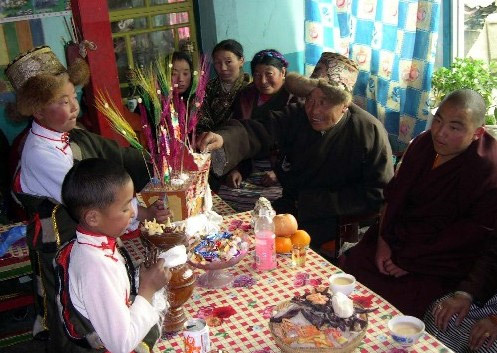
The Tibetan calendar year is the most solemn festival of the Tibetan people. Since the beginning of December in the Tibetan calendar, people have been busy celebrating the New Year. Every household has cultivated highland barley seedlings for the Buddha's double cabinets to wish a bumper harvest in the coming year. In mid-December, families fry "kasai" (fruit) with ghee and flour.
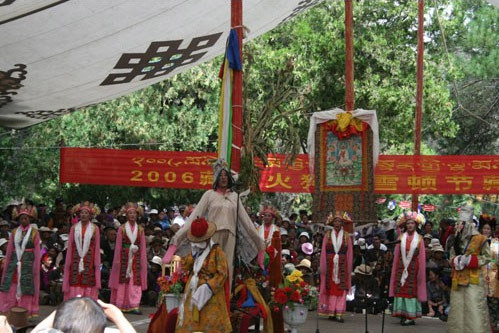
The Xuedon Festival is one of the traditional festivals with a long history in Tibet. In Tibetan, "snow" means yogurt, and "dun" means "banquet". Literally, "Xuedon Festival" is "a festival for eating yogurt". Later, due to the gradual evolution of the content of the Snowdon Festival activities to the Tibetan opera performance, it is also known as the "Tibetan Opera Festival".
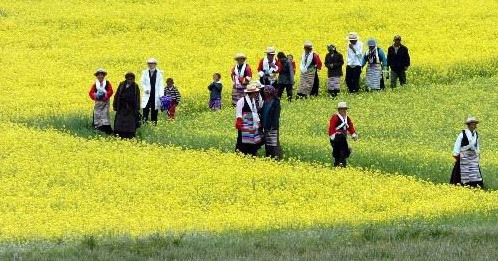
Wangguo Festival This is a festival for the Tibetan people to celebrate the harvest. "Wang" means "field" in Tibetan, "fruit" means "turn around" and "Wang Guo" means "turn around the land". This festival is popular in Shannan, Lhasa, Xigaze and other agricultural areas. There is no fixed day, and it is usually held when the crops are mature.
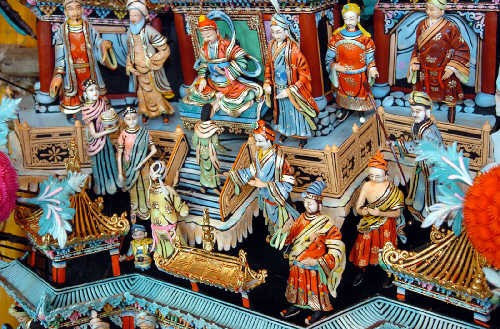
The Ghee Lantern Festival began in the seventh year of Yongle in the Ming Dynasty (1409). It was created by Zong Kaba, the ancestor of the Gelug sect of Tibetan Buddhism, when he founded the Chuan Zhao Dharma Society in Lhasa on the 15th of the first month of the Tibetan calendar. Zong Kaba offered ghee flowers and lanterns to the gold statue of Buddha Sakyamuni in the Jokhang Temple in Lhasa, and commemorated the Buddha with ghev. Another is that the ghee lantern festival is to celebrate the victory of Buddha Sakyamuni in the debate with other sects.
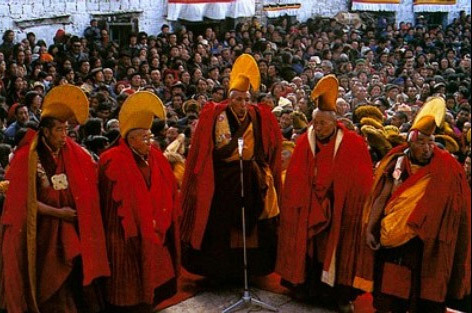
Saga Dawa Festival: April in the Tibetan calendar is called "Saga Dawa Festival" (I. e., the month of Disu). Legend has it that Buddha Sakyamuni was born on the 7th of Sagadawa in the Year of the Iron Monkey in the Tibetan calendar. Sagadawa became a road on the 15th of the year of the Trojan horse. Sagadawa died on the 15th of the year of the Iron Dragon. Therefore, the Tibetan people regard this month as the three-day hymn festival when the Buddha was born, became Taoist and passed away, and regard this month as a month of good fortune and auspiciousness. During Sagadawa, various Buddhist activities were held in various monasteries.
Bathing Festival: in the first ten days of July every year, there is a week of mass bathing activities in the vast agricultural and pastoral areas, urban and rural areas of Tibet, which is the annual bathing week unique to Tibetans. During these 7 days, men, women and children came to the rivers and streams to play and feast heartily. Every day, they came out at sunrise and returned at sunset. According to the Tibetan folk saying, the water in early autumn has eight advantages: sweet, cool, soft, clear, not smelly, drinking does not damage the throat, and drinking does not hurt the abdomen. This summary, from the perspective of Tibet's natural environment and seasonal changes, is There is a certain scientific truth.
Horse Racing Festival: Horse racing is a very favorite activity of the Tibetan people. It is not only a place for gathering and exchanging agricultural and animal husbandry production experience in their spare time, but also a display of the spirit of the Tibetan people. In all Tibetan festivals where folk heritage is popular, horse racing is almost indispensable. Horse racing not only appears in the festival in the form of a motif, but more importantly, the Tibetan people, who are based on their strong belief in horses, have formed such a national traditional "horse racing festival", and this activity has a long history.
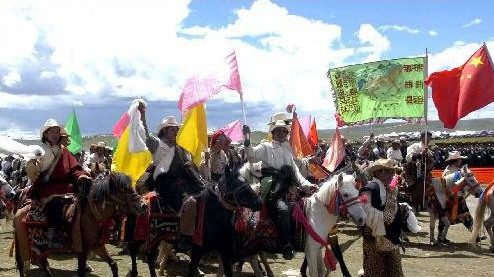
最新动态
2022-08-23
The current outbreak, the responsibility is on the shoulder, Balagzon in action!
Since the outbreak of the epidemic in Tibet on August 7, 2022, a large number of tourists from Tibet to Yunnan have entered Shangri-La from National Highway 214. The People's Government of Diqing Prefecture has issued a series of relevant policies and measures and actively responded. Medical staff, police and other front-line personnel stick to the front line, have been involved in the "war of resistance" of the epidemic without gunpowder smoke, and jointly participate in dealing with a major public health security incident faced by mankind.



